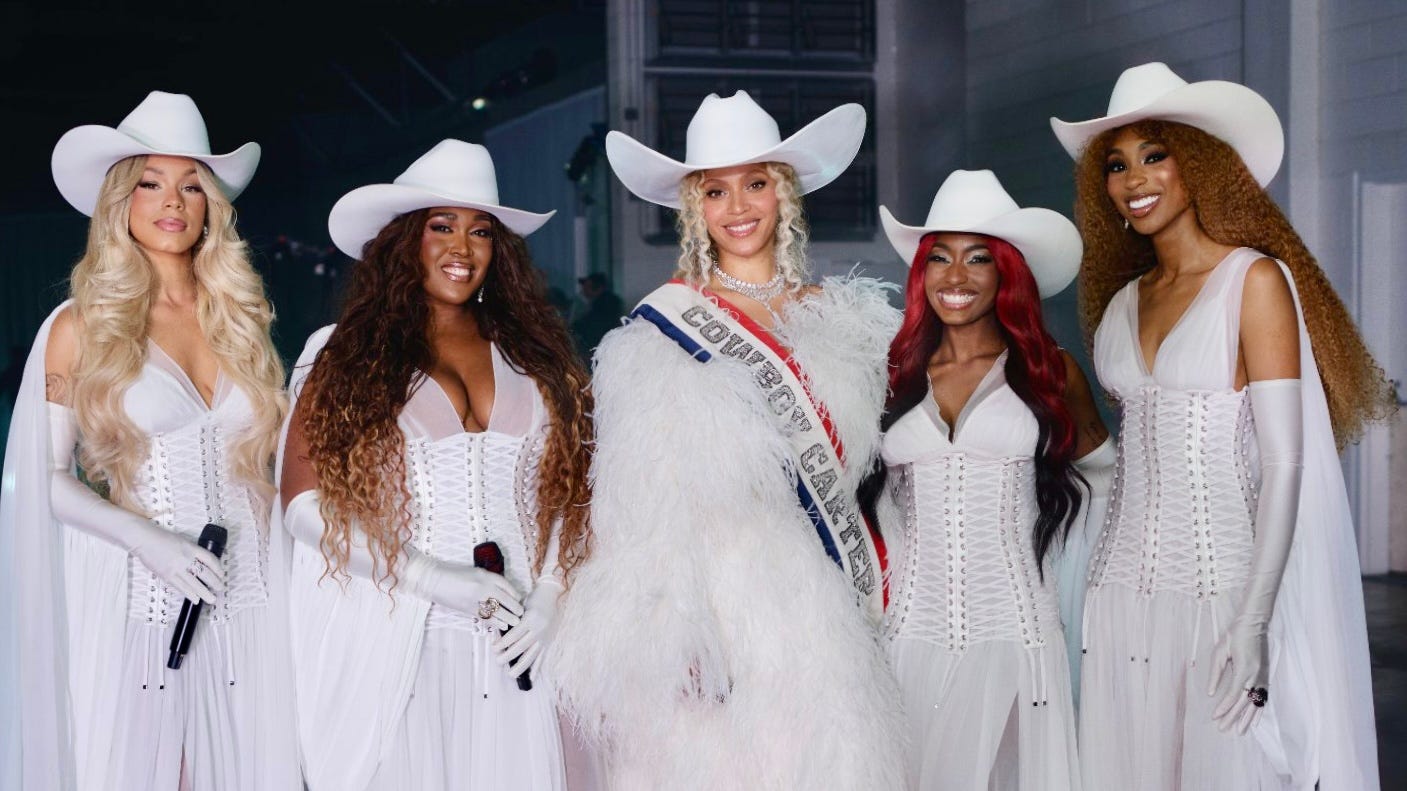A Funny Little Concept: Rediscovering Country Music Through Cowboy Carter
How Beyoncé Reignited My Appreciation for Country Music
In the tranquil darkness of Good Friday morning, as my husband and pets slept, I slipped on my headphones and lost myself in Beyoncé’s Cowboy Carter. My relationship with country music has always been complex. Growing up in rural South Carolina, I was a pop music lover in a area steeped in twang. My parents’ go-to punishment was confiscating my stereo’s…




